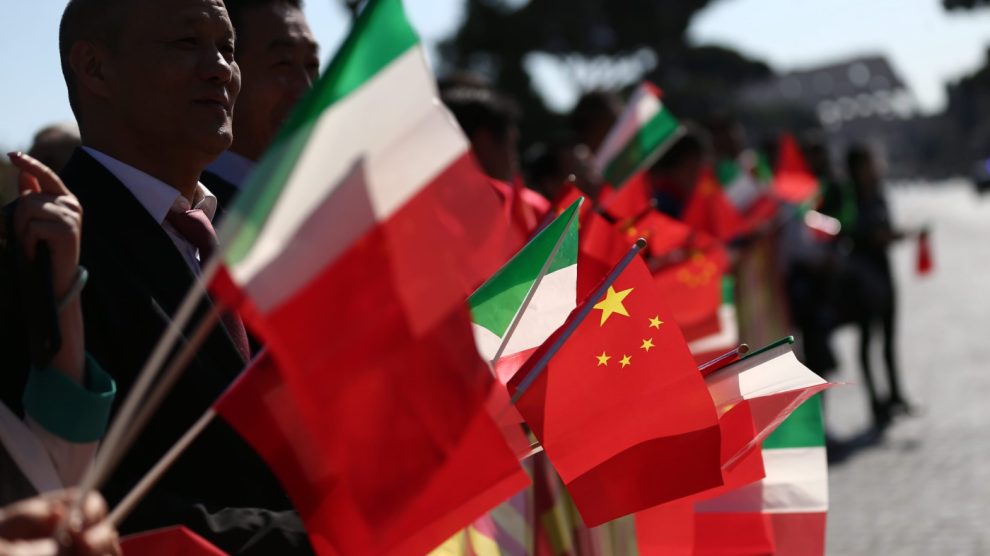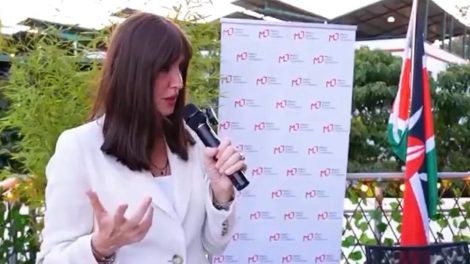A China-style interview. On Monday, Zheng Xuan – acting chargé d’affaires at the Chinese Mission in Rome – gave a rather peculiar, non-political interview to Class Editori – Xinhua/CEIS (which stands for China Economic Information Service, a service of the official Chinese press agency). The title: “Italy-China trade and investments are still increasing.”
- The piece notes the 13.3% increase in trade between Italy and China with respect to 2021’s $75 billion and goes on to say that “despite the adverse geopolitical context” (the causes of which are not explored in detail in the interview), “investments by Chinese companies in Italy have also increased by $70 million.”
Shifting officials (and sentiments). Ambassador Li Junhua left Rome in July to become Undersecretary-General for the Economy and Social Affairs of the United Nations. Ms Zheng stepped in as chargé d’affaires, pending the appointment of a new ambassador.
- It was under his watch that the Embassy’s spokesman implicitly criticised Giorgia Meloni, leader of Brothers of Italy and now Prime Minister, a few days before the elections.
- Referring to her positions vis a vis Beijing, the spokesman expressed dissatisfaction with the “negative remarks that exploit the Taiwan issue to stimulate a hostile approach towards China.” A few days later, the Chinese media covered her victory in a rather unfavourable light.
Pushing for more investments. Chinese investments in Italy are “mainly distributed in the central and northern regions,” explained Ms Zheng in the interview. That is also demonstrated by the Draghi government’s decisions to curb Chinese appetites for strategic Italian companies based there.
- Investment sectors “are finance, fashion, transport, machinery production, medicine and health,” noted the chargé d’affaires, before inviting the new Italian government to “work together” to support companies in both countries “in the realisation of economic, trade and investment cooperation.”
What China would like from Italy. The official lamented a “lack of reciprocity” on behalf of Rome. When speaking of Italian industries that would be welcomed into the Chinese market, Ms Zheng referred to “the aeronautics and the automotive industries,” which are “globally competitive and have many ‘small but beautiful’ products”. These, by the way, are strategic sectors.
- When he mentioned opportunities for Italian companies in China, he limited the perimeter “to the Italian industries of ‘Food, Fashion, Ferrari’ and imagined opportunities on “personalised consumption in areas such as medicine and health, finance and insurance.”
- The again, he hoped for Beijing and Rome to “travel together along the road that leads to the transformation of the green economy and the digital economy,” hoping that Italy “will continue to provide Chinese companies with an open, fair, just and non-discriminatory business environment, thus obtaining mutual advantages and benefits for all.”
Ms Zheng mentioned “economic openness” five times, a stance that, according to her, was reiterated during the CCP’s recent Congress. However, in the words of the EU’s foreign policy chief, Josep Borrell, China is increasingly “a tough competitor” for the bloc. That’s owed to Beijing’s “desire to have influence on all sorts of levels,” and the EU must “engage in a way that stays clear-headed, bearing in mind that [competition] right now is probably the most salient [aspect].”
Green and digital – through the BRI. The Belt and Road Initiative was an inevitable passage in the interview. The diplomat hoped that “Italy will work with China in the future, steadily strengthening mutually beneficial cooperation in green energy, environmental protection and other fields, and pursuing the joint construction of a green Belt and Road.”
- Cooperation within the BRI on the digital front, she added, “fosters dialogue and exchanges between the two countries in the digital sphere, promotes the integration of rules and standards, and leads to the sharing of the benefits of digital development.”
But Italy has changed since 2019, when it signed the Memorandum of Understanding on the Silk Road, under the government headed by Giuseppe Conte. Under Mario Draghi, however, Italy “understands very well how the People’s Republic of China operates in the world,” said US Deputy Secretary of State Wendy Sherman in June. And PM Meloni seems to share her predecessor’s stance.





